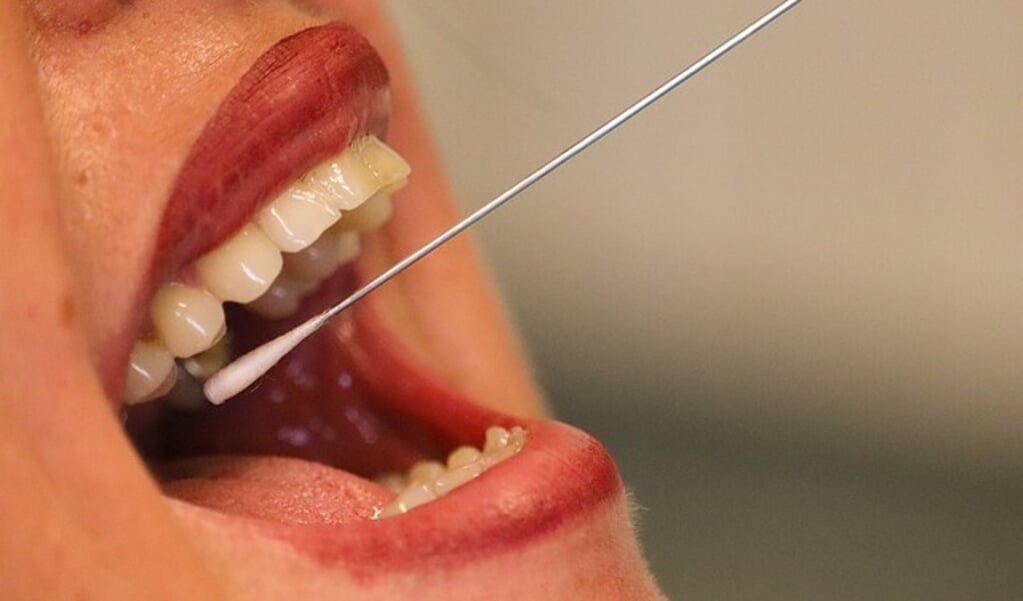AFP
–
NOS News•yesterday, 19:18
–
-
 —
—
Sjoerd den Daas
correspondent China
—
-
 —
—
Sjoerd den Daas
correspondent China
—
–—
Protests have been crushed, the pro-democracy camp is in prison and unwelcome media has had to close its doors. On the 25th anniversary of Communist Party rule Hong Kong, the freedoms promised by Beijing only exist on paper. Two years after the introduction of a far-reaching State Security Act, everything seems dangerous.
–
“Proceed with care, be more lenient. Sometimes even apply self-censorship. That’s what I can do, but there are no guarantees,” says journalist Alvin Chan. He worked a year ago at the now closed Apple Daily newspaper.
–
We used to see each other in the newsroom. Now in court.
–
His day starts early. At dawn, Chan secures a seat in line at a Hong Kong courthouse, where he attends a fraud case against his former Apple Daily boss Jimmy Lai. A louse in the fur was Lai, in the Hong Kong media landscape. Until Apple Daily turned up last summer was forced to stop after a police raid. Several arrests followed.
–
“We used to see each other in the editorial office. Now in court,” Chan coolly summarizes his new life. When Jimmy Lai appears in the dock just after 9:30 a.m., he waves to the audience. His daughter Claire makes a kiss gesture, and manages to speak to him for a few more seconds during a short suspension. She says he’s making it up to the circumstances.
–
“It’s sad to see our boss in jail,” Chan said. “Sad to find that we have lost our job, perhaps our profession as a journalist too.” Chan himself continued, as did several colleagues. He blogs and makes podcasts. “Certainly with everything we’re going through now, I think it’s important that Hong Kongers know what’s happening.” But an unknown number of journalists gave up when Apple Daily closed.
–
“Why? Because Hong Kong’s media industry isn’t the same anymore,” said Stanley Lai, namesake of the newspaper’s former boss. For decades he was a photographer and video maker, traveling for Apple Daily. Now he drives the night shift in his taxi. A few other colleagues have followed the same path, he says. “There is hardly any room left for freedom of expression. It was no longer worth it.”
–
But according to Hong Kong’s newfound leader, John Lee, there is nothing to worry about. “Press freedom already exists in Hong Kong, and it belongs to the Hong Kongers,” he said recently.
–
He was elected chief executive of the city in a mock election. He starts his new job today. “Freedom of the press is like an ID card, it’s in our pockets,” he swore. But since the State Security Act was introduced, at least 189 politicians, activists and journalists have been arrested.
–
Population decreases
Those who wanted and could, left the city. Many ordinary Hong Kongers are also letting their feet speak, at a time when the once promised universal suffrage is further away than ever. For a long time, the number of inhabitants of the city grew by several tens of thousands every year. In 2020, also the start of the corona pandemic, that changed. Hong Kong ‘shrunk’ by 93,000 people. Last year there were 23,000 fewer.
–
Everyone knows people who have left, a large group is thinking about doing the same. For example, John (a pseudonym) concluded that this is not a place where you want to raise your child. “You can no longer say what you want,” he says of his city, until recently the only place on Chinese territory where the Tiananmen massacre was still allowed to be commemorated. John wants to move to Australia.
–
Fiona also hopes for a new life elsewhere. She wants to go to the United Kingdom next year. “Children are being brainwashed,” she says. “We had the freedom to take to the streets here. That’s over. Everyone is afraid of being caught by the police, or by the security services. We hoped for a more liberal China in 1997, but the communist party never changes.”
–
Under the ‘one country, two systems’ formula, Hong Kong’s freedoms should be guaranteed at least for the first 50 years after the return. “It was a brilliant concept,” said Chris Patten, the last British governor of Hong Kong. “A mix of economic and political freedoms. Although I wonder if Beijing policymakers ever understood that. The promises have been broken. Destroyed, by Xi Jinping.”
—
Related posts:
Taylor Swift 'completely shocked' by stabbing of two children in SouthportTurkey: Turkey-China nuclear energy plant negotiations are accomplished - 2024-05-24 23:09:34Erdogan Says US Offers F-16, Substitute for F-35 Stealth Jets!Salerno, lodge in former cement manufacturing unit: "Security in danger"
-


